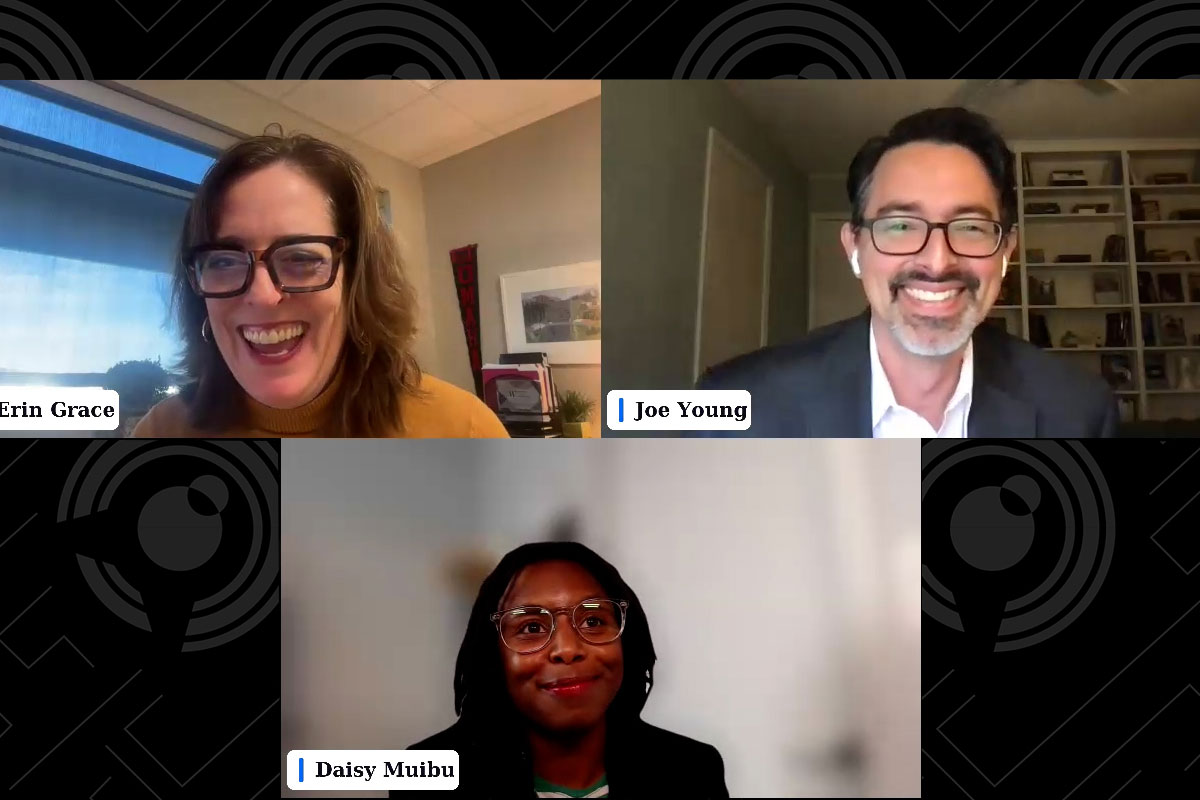RECAP: Building Resilience in the Counterterrorism Workforce
- published: 2024/12/06
- contact: NCITE Communications
- phone: 4025546423
- email: ncite@unomaha.edu
- search keywords:
- vicarious trauma
- counterterrorism
- peer support

On Dec. 5, NCITE hosted a webinar with researchers Daisy Muibu, Ph.D., and Joe Young, Ph.D., on vicarious trauma in the counterterrorism workforce and how peer support programs can help address it. Muibu and Young lead NCITE research exploring vicarious trauma among counterterrorism practitioners.
- Daisy Muibu, Ph.D., NCITE principal investigator and assistant professor of security studies
- Joe Young, Ph.D., NCITE principal investigator and director of the Patterson School of Diplomacy and International Commerce at the University of Kentucky
Key Takeaways
Indirect exposure to traumatic material is an under-appreciated challenge.
Vicarious trauma is the cumulative strain of repeated exposure to stress-inducing traumatic material such as accounts, photos, or videos of violence and abuse. Despite its distinction from primary traumatic stress (direct exposure), vicarious trauma can lead to “a change in someone’s worldview,” Young said, with significant mental health ramifications. “We don’t think about how, for counterterrorism professionals, there’s potentially costs associated with viewing these kinds of materials,” said Young.
Beyond personal well-being, Young and Muibu’s research into vicarious trauma has indicated that work performance can be significantly diminished by the effects of vicarious trauma. “This isn’t about just being touchy-feely and understanding people’s feelings,” said Young. “This is about securing our country.”
Stigma against seeking mental health support is diminishing but still present.
The dedication to service among counterterrorism professionals serves as a protective factor, but also risks prioritizing mission over self-care. “There is a high motivation for folks to serve in a way that is not accepting of this idea that they would need to get help, mostly because they’re there to be the helpers,” said Muibu.
From their surveys and in-depth interviews with practitioners across intelligence, military, and law enforcement, the researchers found that acceptance of mental health support is slowly improving, and practitioners are increasingly seeking it out. “I think today people are much more comfortable sharing unpleasant things,” said Young. “In the old days there was much more of this machismo vibe … and I think that’s sort of melting away.”
Peer support programs stand to offer significant value to practitioners.
In a comprehensive review of existing literature, the researchers found that peer support programs largely demonstrated positive outcomes for reducing work-related mental health strain. “Those that have shared experience are usually more uniquely situated in their understanding in order to empathize more closely with what an individual is going through,” Muibu said.
The researchers found that law enforcement officers who engaged in peer support programs had lower scores for post-traumatic stress disorder, depression, and anxiety compared to officers who did not.
What are the keys to successful peer support programs?
Muibu identified three key components:
- Guaranteed Confidentiality. How programs manifest – in-person or remote, in a group or individual setting, the type of training offered – varies widely, but confidentiality remains a crucial component of success.
- Peer support programs are not a substitute for formal mental health support with a dedicated professional. Young emphasized that, for those who need more targeted care, peer programs can serve as stepping stones for those who could benefit from professional aid.
- Peer support providers are trained. Peer programs are more formal than social supports of coworkers, friends, and family, and providers should be trained to judge when the services they offer are appropriate for the needs of their participants.
Resources
Peer Support Program Project Overview
Vicarous Trauma in Counterterrorism Practitioners – Published June 2024